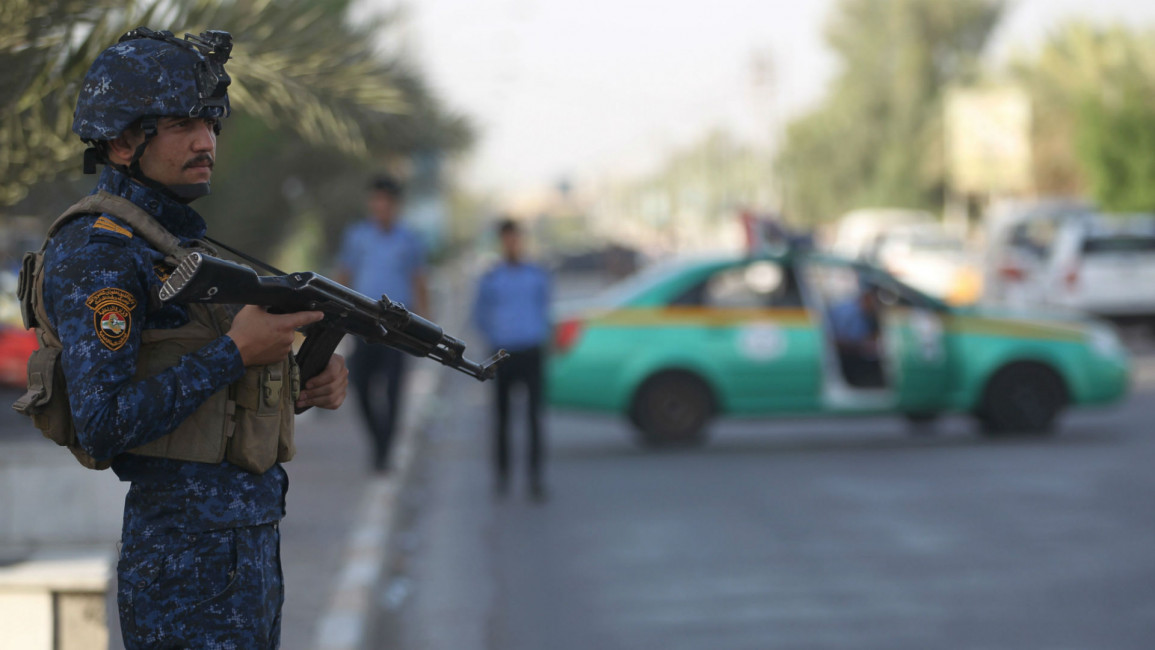Iraq admits holding 'terrorism' suspects for months
Hundreds of Iraqi "terrorism" suspects were held for months by Baghdad authorities, a security agency has admitted, according to Human Rights Watch.
The National Security Service acknowledged it was holding male prisoners at a facility in east Mosul, the Iraqi city from which the Islamic State group was ousted last year.
After previously denying the existence of any detention facilities, the NSS allowed HRW on 4 July to visit the centre where the group found clean but "extremely overcrowded" cells.
"Researchers were granted access to the facility, where officials said 427 prisoners were being held at the time," HRW said in a press release.
Before visiting the facility HRW interviewed archaeologist Faisal Jeber, who said he was detained in early April and estimated at least 450 prisoners were being held, based on a daily head count.
While the 47-year-old was released within 48 hours, he "described horrendous conditions and said that detainees had no access to lawyers, family visits, or medical care".
Those sharing a cell with Jeber said they had been held for four months to two years, according to the 16 May interview.
An NSS officer speaking on the condition of anonymity told researchers some people had been held for "over one year", before the end of the battle to retake Mosul from IS jihadis.
On a daily basis, Iraq's two anti-terror courts in Baghdad and Mosul judge dozens of people suspected of being IS members.
Around 20,000 people were arrested during the three-year battle to evict IS, which seized swathes of western and northern Iraq in 2014.
Children were among those held at the Mosul facility, HRW said as it called on Iraqi authorities to release all minors who had not been charged with a crime.
"Authorities should be doing whatever it takes to make sure that families know where their loved ones are," said Lama Fakih, the organisation's deputy Middle East director.
HRW requested the NSS clarify how many people were being held and to detail the number and location of detention facilities.
Families gather weekly in Mosul to demand news of their missing fathers, brothers and sons.
Interviewed by AFP, many of those searching for relatives feared their family members were wrongly detained on "terrorism" charges amid the chaos of the offensive against IS.
Jeber, the former detainee, told HRW that prisoners said a man "tortured to the point that he had been half paralysed" had died at the facility where he was held.
The NSS, which reports to the prime minister, denied the use of torture and acknowledged "very limited cases of death, which were judicially documented".
Over the past three years, IS has gradually been driven out of nearly all the territory it once held in Syria and Iraq.
But the group still maintains a presence in the Syrian desert and remote areas along the Syria-Iraq border.
Iraq's air force has carried out several strikes on IS-held territory in Syria since April, including one targeting "the headquarters of IS terrorist gang leaders" in Hajin on 24 May.
In December, the Iraqi government declared victory over IS but the military has continued regular operations targeting mostly desert areas along the porous Syrian border.
Mosul fell to Iraqi forces almost a year ago, after a gruelling and bloody offensive that saw thousands of militants, soldiers and civilians killed.
Agencies contributed to this report.



